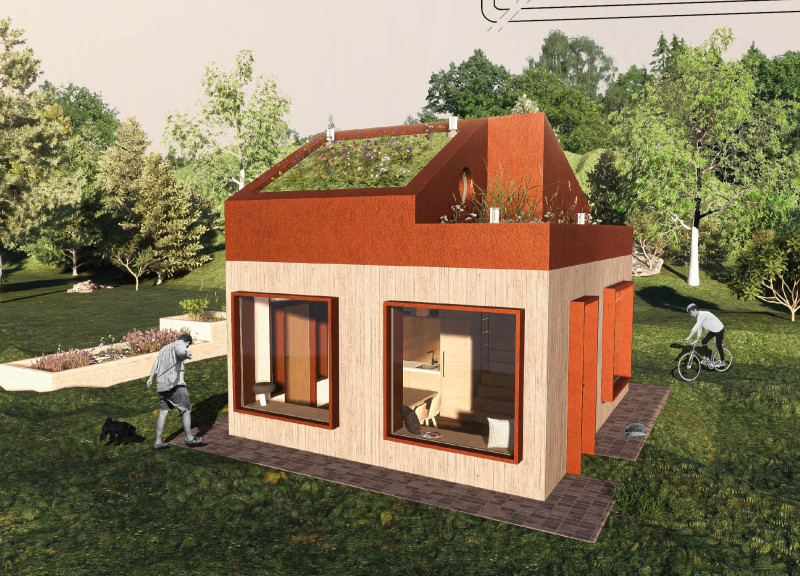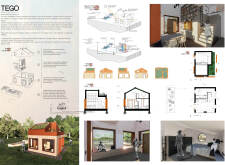5 key facts about this project
At its core, Tego serves as a versatile living space that promotes a sustainable lifestyle by integrating seamlessly into its ecological surroundings. The design includes essential amenities such as a kitchen, living areas, bedrooms, and a bathroom, all laid out in an efficient manner. By prioritizing multi-functionality within a compact structure, Tego addresses the demands of urban living where space can often be limited. The thoughtful arrangement allows for fluid movement through the spaces, creating an inviting atmosphere that feels larger than its physical dimensions.
One of the prominent aspects of Tego is its commitment to sustainable practices. The project utilizes carefully selected materials that reflect the principles of durability and minimal environmental impact. The main structural components include locally sourced wood, which reinforces the project’s ethical stance by supporting responsible forestry practices. Additionally, the use of high-performance insulation materials demonstrates a proactive approach to energy efficiency, reducing heat loss and maintaining a comfortable interior climate.
Natural stone elements are incorporated into the design, contributing not only to aesthetics but also to the building's thermal mass, which supports passive heating and cooling strategies. Large, energy-efficient windows have been purposefully positioned to maximize natural light while also enhancing cross-ventilation. This attention to detail ensures that the living environment remains bright and airy, further enriching the living experience.
Tego’s unique design approaches encapsulate various innovative strategies. One notable element is the integration of phytopurification systems, which harness biological processes to manage water. This feature embodies an innovative blend of utility and ecological consideration, highlighting how modern architecture can create infrastructure that positively impacts the environment.
The connection between indoor and outdoor spaces is another defining characteristic of Tego. By optimizing visual and physical transitions to the surrounding landscape, the design promotes a clear relationship with nature, allowing residents to appreciate and engage with their environment. This connection is particularly vital for urban dwellers seeking moments of retreat within an increasingly busy lifestyle.
In essence, Tego captures the essence of modern architecture with its practical and eco-conscious design elements. It stands as a testament to what can be achieved when thoughtful architecture meets the calls for sustainability and innovation. Readers interested in exploring the depth of this project are encouraged to review the architectural plans, architectural sections, architectural designs, and architectural ideas that encapsulate Tego’s vision and execution. Engaging with these details allows for a more comprehensive understanding of the project’s significance and the potential it holds for future architectural endeavors.























